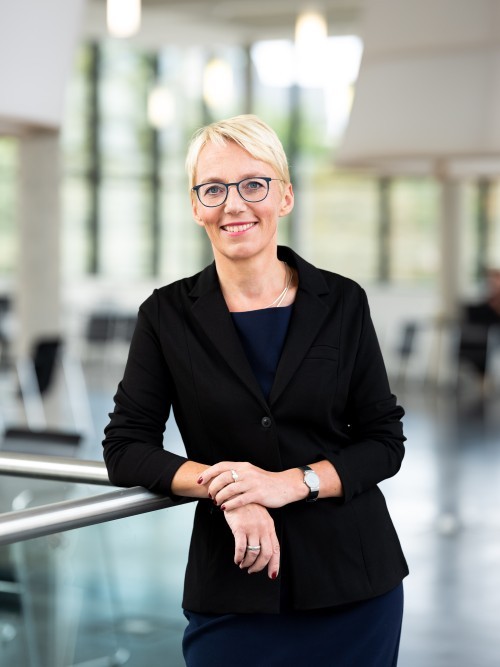Research at the high-power laser
New International Research Training Group “Nuclear Photonics” links TU Darmstadt with the ELI-NP laser research project
2023/05/08 by Pietralla/mho
The German Research Foundation (DFG) has approved the International Research Training Group “Nuclear Photonics” of TU Darmstadt and the Polytechnic University of Bucharest. The Research Training Group will be funded with approximately five million euros from 1 October 2023 to 30 September 2028. The spokesperson is TU Professor Norbert Pietralla.

Nuclear photonics is a rapidly developing interdisciplinary research field. It includes the generation of brilliant particle beams by high-power lasers, basic research in nuclear physics with photonuclear reactions and developments of new techniques and methods for their use. Beams of high-energy photons, of light and heavy ions and of neutrons are to be generated and improved by lasers.
Photonuclear research will provide valuable data on nuclear structure and astrophysical issues and their scientific interpretation. Aspects of accelerator technology, radiation-hard particle detectors and corresponding measurement methods are to expand technological and metrological applications of nuclear photonics. Among other things, the results will be used to gain new insights into the formation of the heaviest elements in the universe and to develop methods for the disposal of radioactive waste or new tools for diagnosis and medical treatment.
Tanja Brühl,
President of TU Darmstadt
I congratulate my colleagues at TU Darmstadt and the Universității Politehnica din București very warmly on this success! Together with our long-standing partner university, we are able to establish the first Research Training Group with an institution in Romania, the international Research Training Group Nuclear Photonics. The Research Training Group Nuclear Photonics is an important building block in our research field Matter and Materials and for TU Darmstadt's participation in the Excellence Strategy of the federal and state governments.

The International Research Training Group combines the research strength of TU Darmstadt with a new programme at Politehnica in Bucharest to use and support the unique instruments of the European Extreme-Light Infrastructure – Nuclear Physics (ELI-NP). ELI is a network of three large research facilities currently being built in Bucharest (Romania, ELI-Nuclear Physics), Prague (Czech Republic, ELI-Beamlines) and Szeged (Hungary, ELI-ALPS), with scientists from TU Darmstadt involved in their planning and construction.
Direct access to leading instruments in nuclear photonics
Up to 80 early career researchers will benefit from direct access to world-class instrumentation in nuclear photonics, which they can use for their research projects in an international, collaborative and challenging environment with guidance from a diverse team of 21 experienced scientists. A tailor-made qualification programme aims at scientific excellence of the fellows to best prepare them for career paths in research or in the private or public sector.
“The individual research projects are the backbone of the qualification,” explains TU professor and Research Training Group spokesperson Norbert Pietralla. “They are carried out with the help of extended research stays at both partner institutions. New appointments broaden the teaching offer, which is supported by promotions of early scientific independence and visibility, including networking and experiences with international summer schools and conferences or publication trainings.”
Individual research projects as the backbone of qualification
The supervision concept is also based on selected measures that support early career researchers in achieving their research goals and their doctorate at an early stage. They include transparent supervision agreements and individual doctoral committees that monitor research progress in regular meetings. Measures from the qualification programme simultaneously serve to closely supervise doctoral projects. Regular plenary meetings ensure that junior researchers have a say in the development of research goals, measures in the qualification programme and the supervision concept. For its part, the progress of the research training group is monitored annually by an advisory committee made up of a diverse group of top international researchers.
